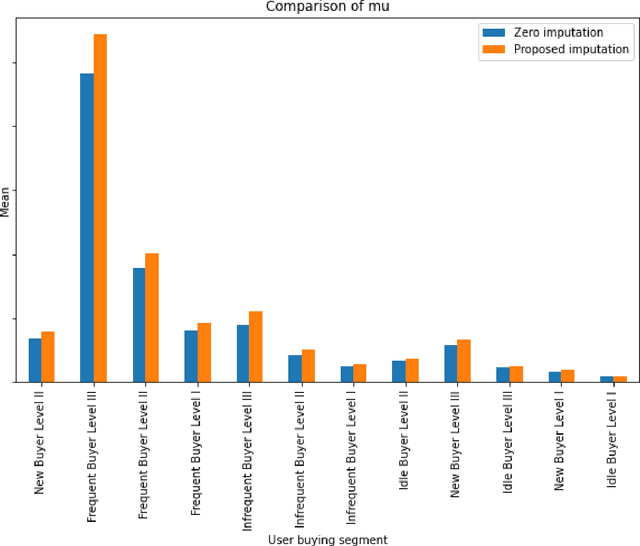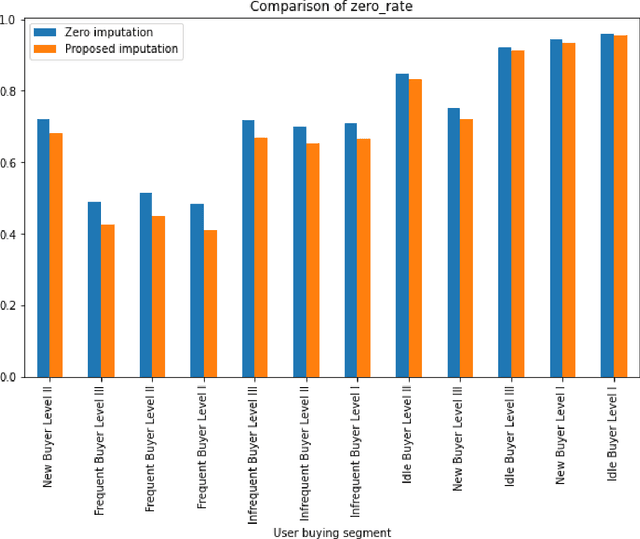Boosting Sensitivity of Large-scale Online Experimentation via Dropout Buyer Imputation
Paper and Code
Sep 09, 2022



Metrics provide strong evidence to support hypotheses in online experimentation and hence reduce debates in the decision-making process. In this work, we introduce the concept of dropout buyers and categorize users with incomplete metric values into two groups: visitors and dropout buyers. For the analysis of incomplete metrics, we propose a cluster-based k-nearest neighbors-based imputation method. Our proposed imputation method considers both the experiment-specific features and users' activities along their shopping paths, allowing different imputation values for different users. To facilitate efficient imputation in large-scale data sets in online experimentation, the proposed method uses a combination of stratification and clustering. The performance of the proposed method was compared to several conventional methods in a past experiment at eBay.
 Add to Chrome
Add to Chrome Add to Firefox
Add to Firefox Add to Edge
Add to Edge